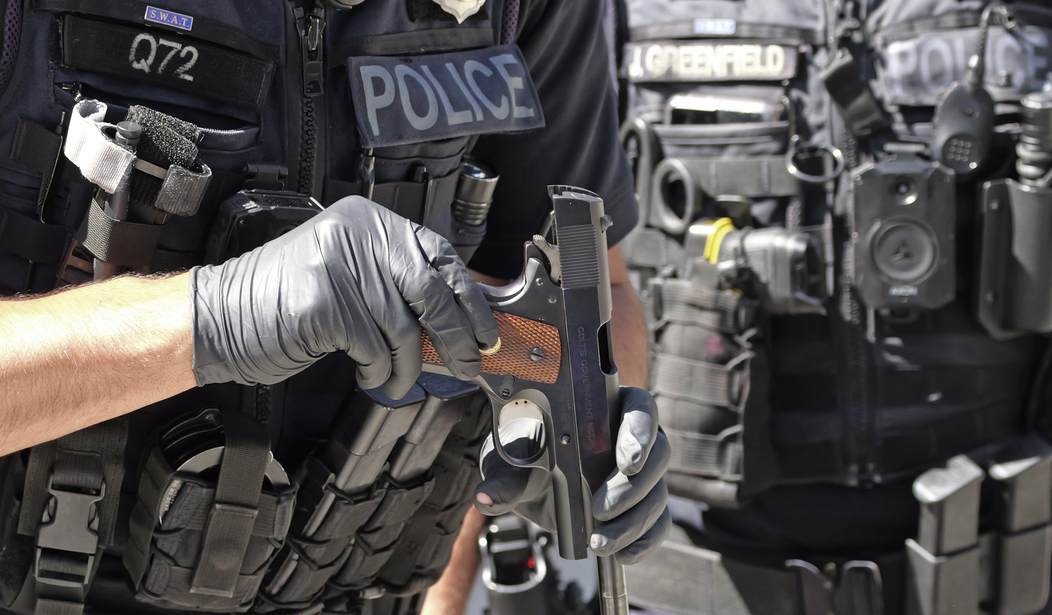A traffic stop in the Garden State in 2018 led to an unlawful firearm possession charge. In New Jersey, under the Graves Act, someone a foul of the law faces imprisonment for 3-5 years minimum mandatory. The conflict revolves around window tinting on the defendant’s vehicle. NJ has a law where the windshield and both front windows may not be tinted. As for the rear windows and back window? Good to go. The NJ Supreme Court ruled that the firearm that was found because of the stop was fruit of a poisonous tree, thus the stop was unconstitutional.
While the state prohibits the use of any “non-transparent material” on the front windshield or front side windows, it does not cover rear windows. Hence, the traffic cop who pulled over the man did so unconstitutionally, the state Supreme Court ruled 6-0.
In November 2018, at aroud 10:20 p.m., Trenton detectives stopped David Smith’s vehicle for a purported tinted windows violation after they found dark tinting on the rear windshield.
Despite the windshield’s tint, officers said he saw Smith making a furtive “shoving” motion, raising suspicions he was trying to conceal a weapon, the ruling said. On searching the vehicle, they found a gun and charged Smith with various weapons offenses, according to the ruling.
Smith challenged the arrest saying it was unjustifiable, but the trial and appellate courts denied his motion to suppress the handgun found in his car. He pled guilty to second-degree unlawful possession of a handgun and was sentenced to five years in prison with a three-and-one-half year period of parole ineligibility.
An appellate court sided with the trial judge saying that police did not have to prove an actual traffic violation to make a stop, as long as the “officer had a reasonable articulable suspicion of a motor vehicle violation.”
When the case went to the Supreme Court, prosecutors conceded that officers did not have reasonable suspicion to stop the vehicle. The judge vacated Smith’s conviction and dismissed his charges. But the Supreme Court proceeded with the case anyway “because they are of sufficient public importance and likely to surface again,” Justice Lee Solomon wrote.
Good is what I say. This scenario makes people wonder, not that they really have to because this is Jersey we’re talking about, but how many predatory stops do the police make in the Garden State? There was no reason to stop Smith in the first place. The Fourth Amendment violation led to Smith’s arrest over firearm possession. There was no mention of Smith having or not having any former criminal activity in his history, so we’re to assume Smith was at the time a law abiding citizen, except for the victimless crime of having a gun.
While NYSRPA v. Bruen has really left some mayhem in its wake (in a good way), it’s not likely that all permitting will be abolished anytime soon. However, what I can see getting put into the crosshairs are the draconian provisions in New Jersey’s law, as well as other jurisdictions. If the Second Amendment is there to primarily keep our right to keep and carry firearms for self-defense intact, how could a person that’s not properly permitted or licensed end up with a felony? All for not having a mother-may-I from the state? I would like to see the constitutionality of the penalties challenged, as they are disproportionate when we’re talking about non-criminal intent.
This is a big win for privacy rights and really, gun rights. How many unlawful fishing expeditions from police brought forward a firearm charge? A lot. And, if they’re a non-violent, non-disqualified person, I see no harm in the infraction. Rather, I’d assert, what infraction? Hopefully there’ll be some relief coming down the line to all the law abiding criminals in states like New Jersey.








Join the conversation as a VIP Member